CBS researchers investigate the world of tea: A window into politics, capitalism and sustainability
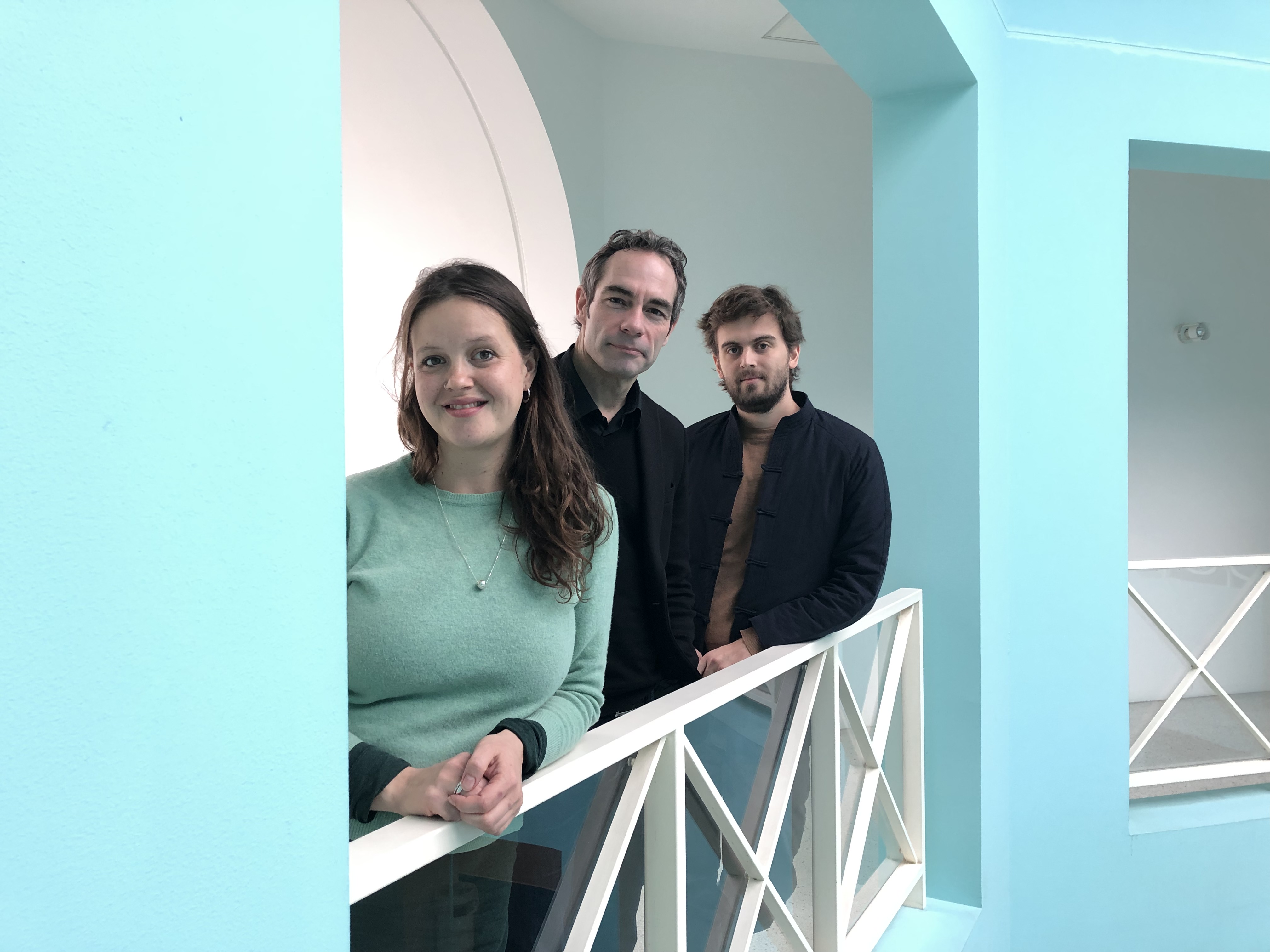
Hannah Elliott, Martin Skrydstrup and Matthew Archer are spending the next couple of years to investigate the worlds of tea. (Photo: Anne M. Lykkegaard)
Tea, the second-most consumed drink in the world, is undergoing rigorous scrutiny, as three anthropologists from CBS explore what sustainable tea is, how it is certified, and who benefits from the certifications. Also, hear how entering into the worlds of tea has changed the researchers’ view on this tasty brew.
China 2737 BCE. The mythical emperor, Shennong sits under a Camellia sinensis tree while his servant boils drinking water. A wind blows some leaves from the tree into the pot of boiling water, and the emperor decides that he wants to try the drink his servant has created. Tea was invented. Or so the myth goes.
Today, tea – after water – is the most consumed drink in the world, according to the statistics database, Statista. Just go to any supermarket and take a stroll down the tea and coffee aisle, and you’ll discover a world of tea from different brands, different parts of the world, and with different certifications.
And it’s exactly the certifications concerning sustainability that are the key subject in a new research project led by Associate Professor Martin Skrydstrup from the Department of Management, Society and Communication at CBS.
“In this project, we will investigate how the tea industry competes on sustainability and how the concept of sustainability becomes a commodity in itself,” says Martin Skrydstrup, who received a Sapere Aude grant of DKK 5,886,680 from the Danish Council for Independent Research.
Together with anthropologists Hannah Elliott, PostDoc, and Matthew Archer, Assistant Professor, from the same department, Martin Skrydstrup will investigate: the terms under which the certifications are constructed; the roles they play in the global value chains; and the impacts of the different types of certification. This includes talking to farmers, plantation owners, tea companies, traders, and the managers of the certification associations from Kenya to Dubai to northern Europe.
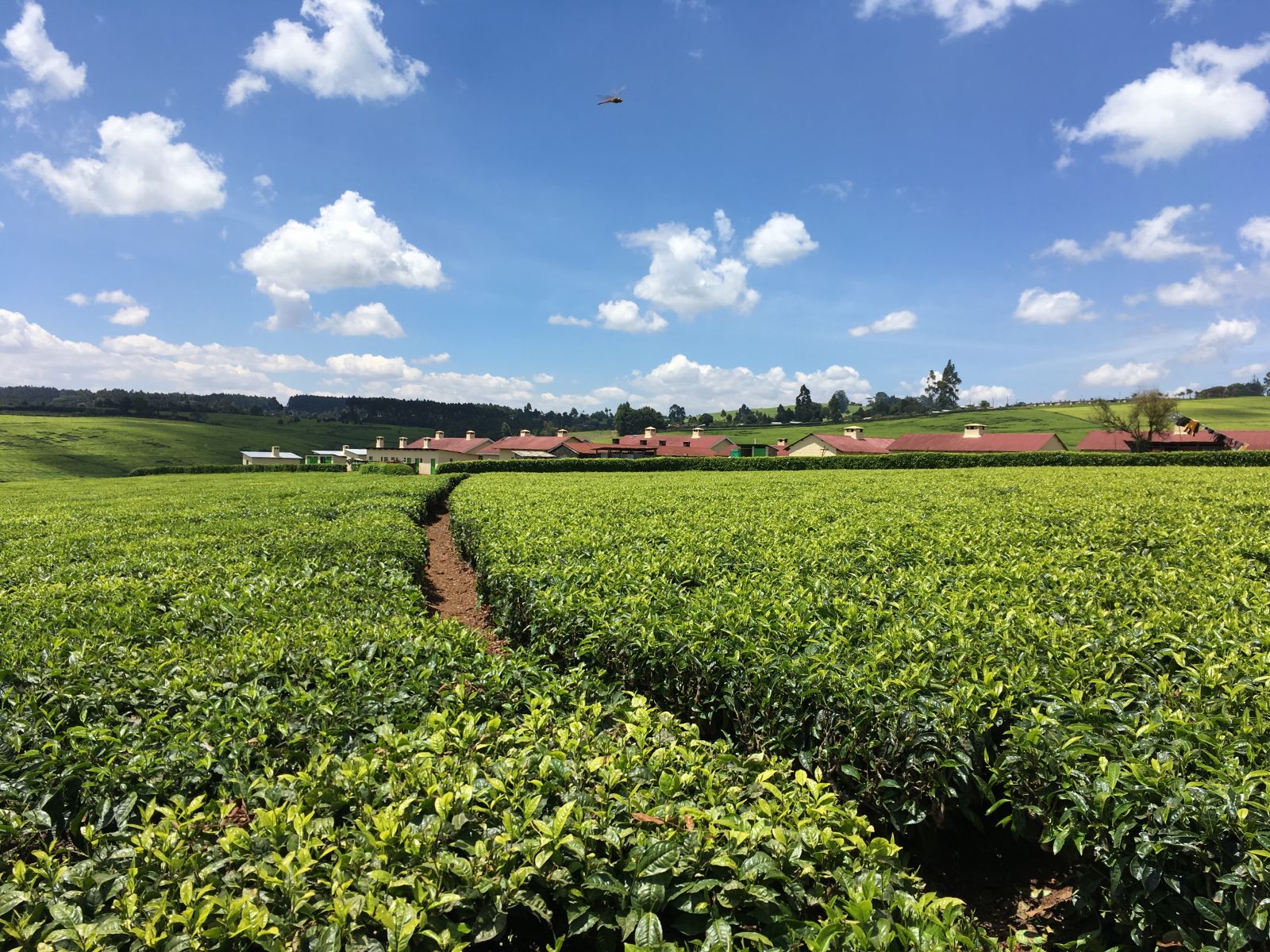
“Tea is a cash crop, which was developed under British colonialism in Kenya, and is very much connected to capital interests, politics and the environment, so it’s a very legacy-driven sector. Tea serves as a window into broader aspects, and that really intrigued me,” says Martin Skrydstrup about the original idea for the project, which is entitled: ‘Sustainability’s Infrastructure: A novel ethnographic approach to the global value chain of certified tea’.
Certifications dictate the sale of tea
Each member of the research team has a different area of expertise, which connects with a distinct research line. Matthew Archer will focus on the tea certifications, especially Fairtrade and Rainforest Alliance, which are among the best-known sustainability certifications.
“Tea often falls under the same category as coffee and cocoa. However, Fair Trade has made their own certification for tea producers, which is interesting, since Rainforest Alliance has a more diverse certification, which covers everything from cotton to coffee. So what does that mean? And how does it influence the tea market?” asks Matthew Archer.
But indeed I would rather have nothing but tea
Jane Austen, Mansfield Park
Martin Skrydstrup explains that the certifications dictate how much the tea producers can sell, as certain certificates are needed in order to enter specific markets. And that influences everyone from the farmer to the tea plantation owner, which Hannah Elliott, who speaks Swahili, will look into.
“The tea plantation managers are very much concerned with the Rainforest Alliance certification, as it provides access to a bigger market. However, if you ask the smallholders who are growing, they say that the Fairtrade certification benefits them more, as the buyer pays more for the tea,” says Hannah Elliott, who conducted research on tea plantations and in factories in Kenya in November.
Beyond the books
Since three anthropologists are carrying out the project, they will, of course, work as anthropologists in the field.
This means a lot of traveling to tea-producing nations, tea trade fair visits, and meetings with people from the industry and certification associations. But this is necessary if the research is to go beyond what is already known.
“To understand how the global supply chain works and is experienced, it requires spending time with the range of people who work within it, whether producing, certifying or trading tea. You can’t understand it from their perspective if you don’t talk to them,” says Hannah Elliott.
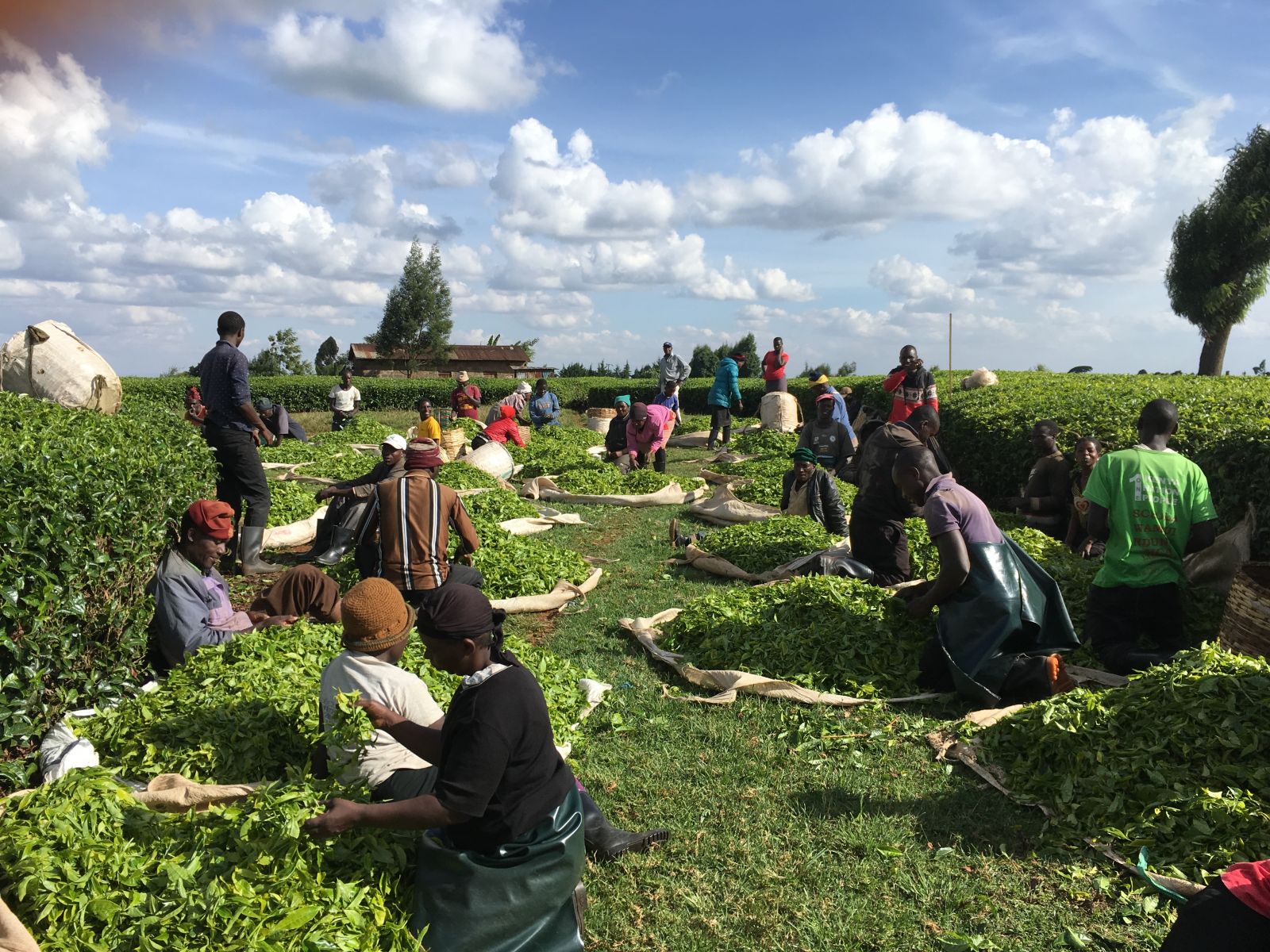
Martin Skrydstrup adds:
“You can produce this study using reports, statistics and other literature, but we want to go beyond the information you can find in books, the internet, or a 30-minute interview. This is very much part of working ethnographically.”
So far, the project is funded for two years, but with the possibility of an extension.
Who will gain from the project’s findings?
“When we talk to people from the industry at conferences they often say about academics, ‘You’re always behind’. But we want to be relevant to them, and give them a better understanding of how the certifications impact everyone in the industry and make the processes more transparent,” says Martin Skrydstrup.
Tea tastes like a freshly watered elephant
None of the researchers have worked with tea in a research context before, but they are already surprised by the world of tea.
Hannah Elliott’s world of tea, for example, used to mainly consist of black tea with milk. But now it’s so much more.
“I didn’t know this many kinds of tea existed, not to mention the ways to brew it. Also, it’s been great fun to learn the vocabularies that exist within the world of tea, for example the different terms for different kinds of leaves on tea bushes, or the terms tasters use to describe a tea’s flavor, such as ‘baggy’ or ‘rasping’,” she says.
Honestly, if you're given the choice between Armageddon or tea, you don't say 'what kind of tea’?
Neil Gaiman, Author
Matthew Archer is very much focused on the certifications and the different labels on the boxes of tea. Now, it’s the first thing he looks for when shopping for tea.
“Every box of tea has some sort of labeling on it, and I have started to notice that a lot, which is nice. I see now that it has an impact on me, and I start to question what’s behind the labels, and how they can shift consumer behavior. Some certifications are easy to get, and if a tea brand only has the easy-to-get certifications, then I ask myself what’s really behind the brand,” he says.
Martin Skrydstrup has met many interesting people from the tea industry, but one person stands out.
There are few hours in life more agreeable than the hour dedicated to the ceremony known as afternoon tea
Henry James, The Portrait of a Lady
“Matthew and I met this German master tea taster when we were attending a tea, coffee and cocoa fair in Hamburg. He had been in the business for more than 40 years and had a special liking for so-called pu’er tea from China, and said that if brewed correctly, it would taste like going to the zoo when the elephants had just been watered. Also, this tea master claimed he could taste the difference between about 1,600 types of tea,” says Martin Skrydstrup.
You can follow Martin Skrydstrup, Hannah Elliott and Matthew Archer’s project at the website sustein.org. Here, they will blog about the process, including the fieldwork in Kenya, Dubai and northern Europe.



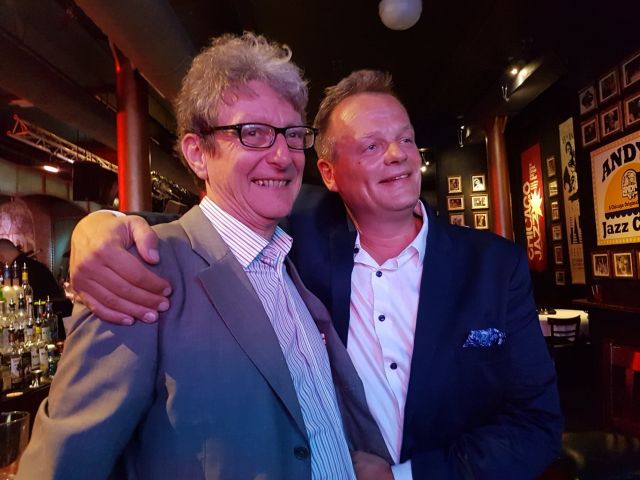
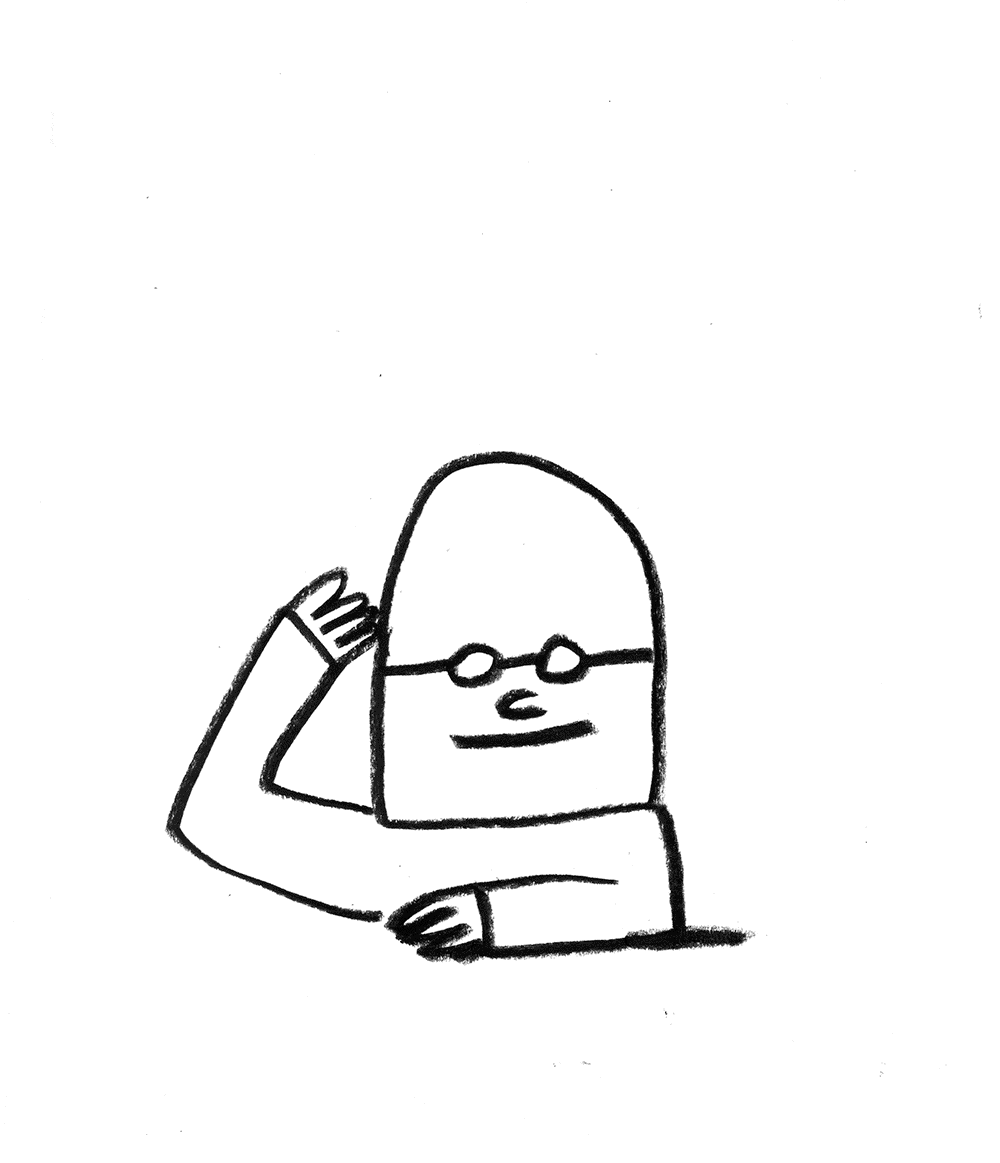
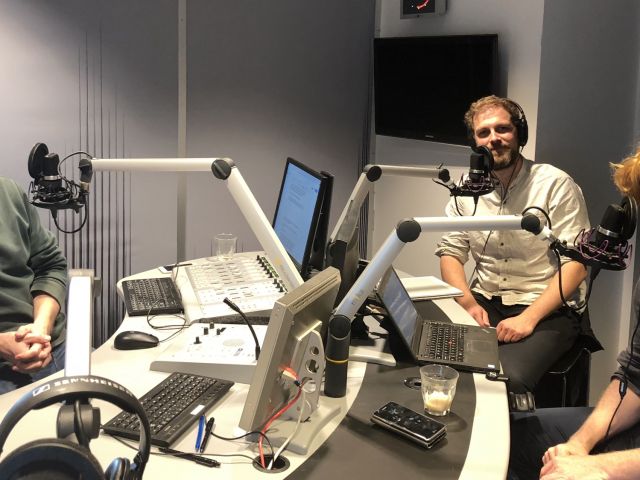































































































































Comments